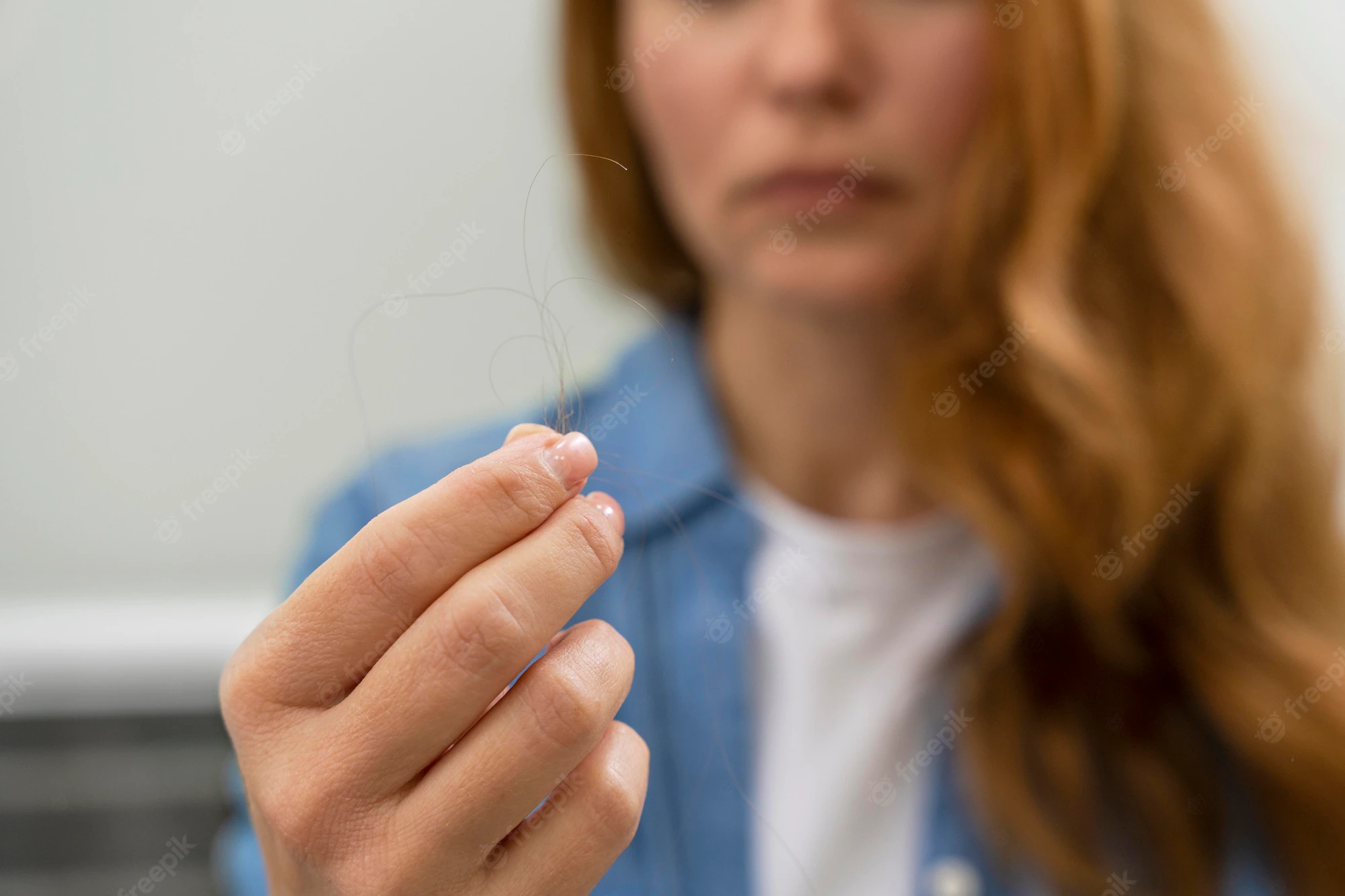Overview
For generations, Thailand and other Southeast Asian countries have utilized kratom, a plant-based stimulant, in their traditional medicine. Additionally, it has being researched for possible medical benefits, including as the treatment of depression, anxiety, and pain. But according to recent studies, using kratom can also cause hair loss.
Title: Hair loss and kratom use
First of all,
For generationsintroductory sectiond other Southeast Asian countries have utilized kratom, a plant-based stimulant, in their traditional medicine. Additionally, it has being researched for possible medical benefits, including as the treatment of depression, anxiety, and pain. But according to recent studies, using kratom can also cause hair loss.
Will artificial intelligence eventually supplant copywriters?
introduction:
Creating content for your blog or website involves a number of processes, including organizing your writing so that it flows from point to point, researching similar subjects so that you have references ready, and preparing the topic you want to discuss. Even if these duties all sound difficult, read this article to learn how AI-powered software may really make them lot simpler for you!
What comprises kratom, and what is it?
Southeast Asians utilize kratom, a tree in the coffee family, to alleviate chronic pain and opioid addiction. The kratom tree’s leaves and bark are eaten as a stimulant and analgesic. Mitragynine, an opioid, and 7-hydroxymitragynine, which is thought to be the primary psychoactive ingredient in Kratom, are both present. Although there is no data on how kratom affects hair loss, anecdotal evidence points to potential benefits for slowing hair loss and enhancing scalp health.
adverse effects of using kratom
Hair loss is one of the negative effects of kratom use that has been linked to several issues. While more research is needed to fully understand the effects of kratom use, some users may experience hair loss as a result of using the drug.
Large doses of kratom have been reported to make users feel sleepy and lightheaded. Therefore, using kratom may increase the risk of falls and other mishaps. Furthermore, there is evidence linking the usage of kratom to elevated levels of inflammation and oxidative stress. Skin issues and hair loss may result from these circumstances.
Although research on the negative effects of kratom use is ongoing, it’s crucial to be aware of them. It is best to discuss the potential of using kratom in moderation with your healthcare physician if you are worried about your hair loss.
How can using kratom affect the growth of hair?
Native to Southeast Asia, kratom is an evergreen tree in the coffee family. Thailand, Malaysia, and Papua New Guinea utilize its leaves as a stimulant, narcotic, and tea. It is mostly utilized as an energy booster and for its opioid-like effects in the United States.
There is some indication that kratom consumption may be associated with hair loss, even though its lengthy history of traditional use has not been well investigated. In a further investigation of this relationship, a study that was published in the journal Drugs & Aging discovered that kratom usage was linked to a significant decline in hair growth velocity (HGV) in both men and women. Furthermore, it was discovered that kratom users’ hair contained fewer essential proteins that promote hair growth when compared to the hair of non-users.
More investigation is required to fully understand the nature of the connection between kratom usage and hair loss, even if this study offers compelling evidence of one. However, it is advised to stay away from kratom completely if you are worried about current hair loss or wish to stop additional shrinking.
What is known as kratom?
A Southeast Asian tree called kratom is used to treat pain and the symptoms of opiate withdrawal. The National Library of Medicine states that for generations, people in Thailand, Malaysia, Indonesia, and Papua New Guinea have utilized the leaves and stem of kratom as a stimulant, analgesic, anti-inflammatory, and remedy for diarrhea. Research on kratom’s effects on hair loss is scarce. Kratom, however, is used by some to alleviate hair loss brought on by stress or other factors.
See your physician first if you’re thinking about using kratom to cure hair loss. Some adverse effects of kratom include anxiety, lightheadedness, and seizures. Furthermore, the Food and Drug Administration (FDA) of the United States has not approved the use of kratom for the treatment of hair loss.
What negative effects might using kratom cause?
Kratom is a plant-based product used as a stimulant and an alternative to opiates. It comes from a plant found in Southeast Asia called Mitragyna speciosa. After decades of use in traditional medicine in Malaysia and Thailand, kratom is currently being investigated in the US for possible medical benefits. Few published reports of negative effects associated with kratom usage exist, and there hasn’t been much research done on the use of kratom. But there are a few possible negative effects of using kratom that need to be taken into account:
1) Constipation may result from using kratom.
2) Kratom may result in restlessness, anxiety, and irritability.
3) Using kratom can raise heart rate and blood pressure.
4) If Kratom use is stopped suddenly, withdrawal symptoms may occur. These could include fever, aches in the muscles, vomiting, diarrhea, and nausea.
How might using kratom impact the growth of hair?
Asia has long utilized the herb kratom to treat a wide range of illnesses. Kratom has gained popularity in the US recently because to its supposed benefits as an opioid substitute and stimulant. Although there isn’t much research on how kratom use may impact hair growth, preliminary findings indicate that it may have an impact on users’ hair growth.
Mitragynine and 7-hydroxymitragynine, which are found in kratom, are known to interact with the body’s circulatory and blood flow regulation system. Increased blood flow to the scalp as a result of this interaction may encourage the growth of hair. Further investigation is need to validate these results, though.
Talk to your doctor about any potential affects on hair growth if you use kratom. Although there is no proof that consuming kratom will result in permanent hair loss, it is still advisable to be informed about any possible concerns before using this supplement.
How can I reduce the possibility that kratom will affect my hair growth?
Since kratom use can have a range of potential impacts on hair development, there is no conclusive answer to this topic. However, there are techniques to reduce the possible harm, such as avoiding large dosages of kratom and always seeking medical advice before beginning any new treatment or supplement. It’s also critical to monitor your hair development over time and ensure that you are taking the right precautions to avoid any possible hair loss.
What is known as kratom?
Asia has long utilized the herb kratom for its therapeutic properties, treating a wide range of ailments. It has been more well-liked in the US in recent years as a means of reducing pain, boosting vitality, and elevating mood. Hair loss and kratom have also been connected.
High dosages of kratom have the potential to temporarily induce hair loss. To ascertain whether or if kratom is genuinely to blame for human hair loss, more investigation is necessary. Nevertheless, if you are worried about the condition of your hair, it’s critical to be informed of the possible adverse effects of kratom use.
Make careful to consult a healthcare professional before using kratom to treat hair loss. There are a ton of different solutions out there that might work better for you.
How does kratom impact the thinning hair?
People have been utilizing kratom for a number of purposes, and its use has grown over time. It is used by some to get high, by others to relieve pain, and by still others to elevate their mood. But hair loss is the most well-known application for kratom.
There is some data supporting the use of kratom to treat hair loss. More specifically, it appears to function by preventing the development of new hair follicles. Furthermore, research has demonstrated that kratom enhances the functionality of existing hair follicles. This implies that kratom can aid in the growth of hair that has been damaged or lost.
But there are certain hazards involved with using kratom, and there’s no assurance that it will help for you. First off, if you stop using kratom, you could experience withdrawal symptoms because it can be addicting. Second, excessive use of kratom may have adverse effects and it is not FDA authorized. Lastly, even though kratom seems safe in moderation, excessive usage might have negative effects like toxicity and liver issues.
Consequently, even if there is evidence that kratom can occasionally aid with hair loss
How to stop hair loss after using kratom
Southeast Asians have been using the herb kratom for its therapeutic qualities for generations. Even yet, not many people in the West are aware of it. Due in large part to its potential advantages in the treatment of chronic pain, anxiety, and depression, kratom use has been rising in North America and Europe in recent years. Nonetheless, there is still considerable misunderstanding regarding the possible negative effects of using kratom, such as hair loss.
An abundance of anecdotal data suggests that using kratom may cause hair loss. Research is still scarce, though. In one study, 47 kratom users and 37 non-users had their hair follicles examined. They discovered that compared to non-users, users had noticeably fewer hair follicles. However, more research is required to validate these results.
Currently, the only known adverse impact of kratom consumption is heightened anxiety. In the event that your use of kratom is causing you to significantly lose hair, you should stop taking the herb and see a doctor. Even if the long-term effects of kratom use are still somewhat unknown, it’s crucial to be aware of the hazards so that you can decide whether to use it or not.
In summary
It’s crucial to be aware of any possible negative effects if you use kratom for hair loss. There can be drawbacks to kratom use, even if the majority of users report some kind of benefit. It’s crucial to discuss your choices with a physician if using kratom is causing you to lose hair.














